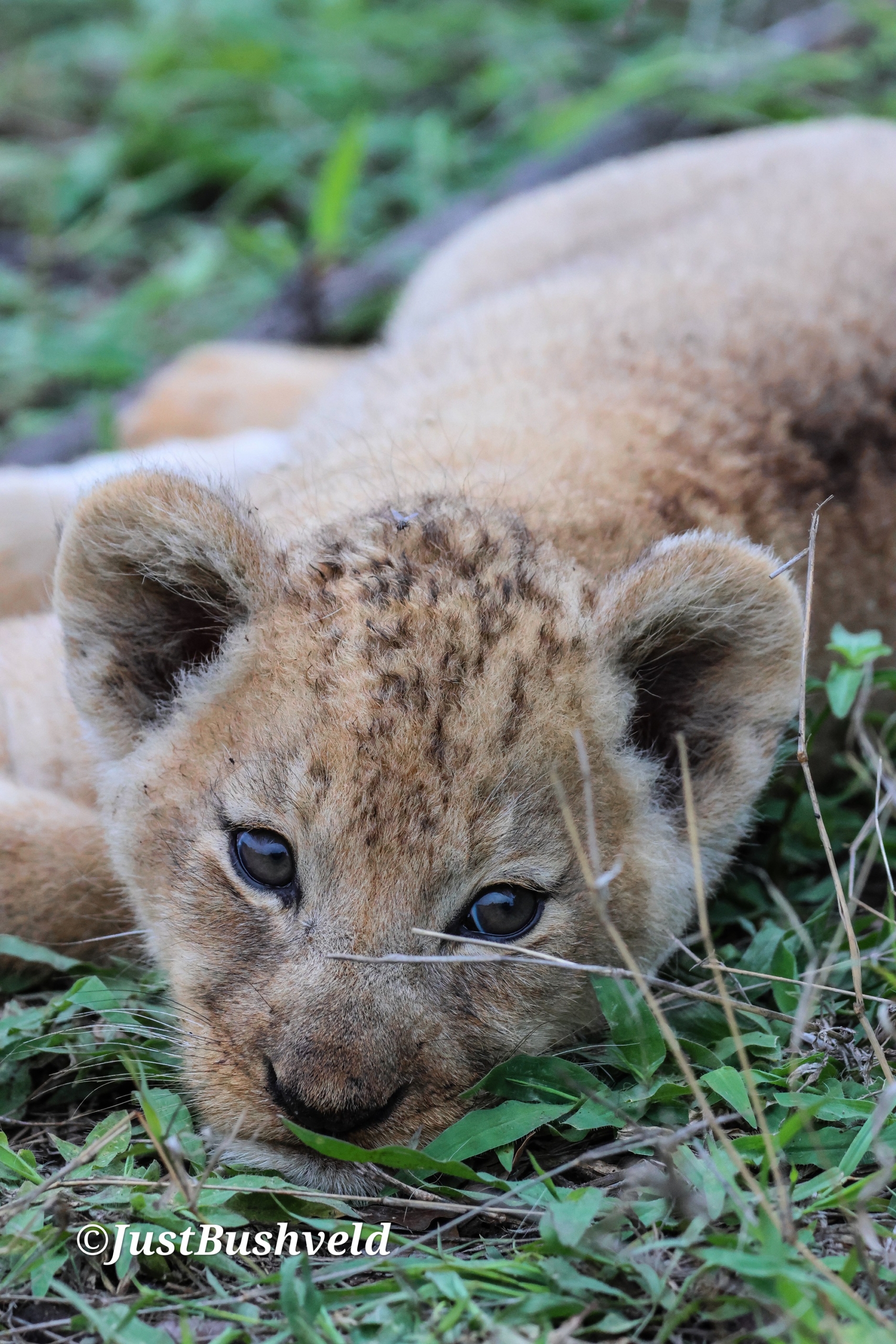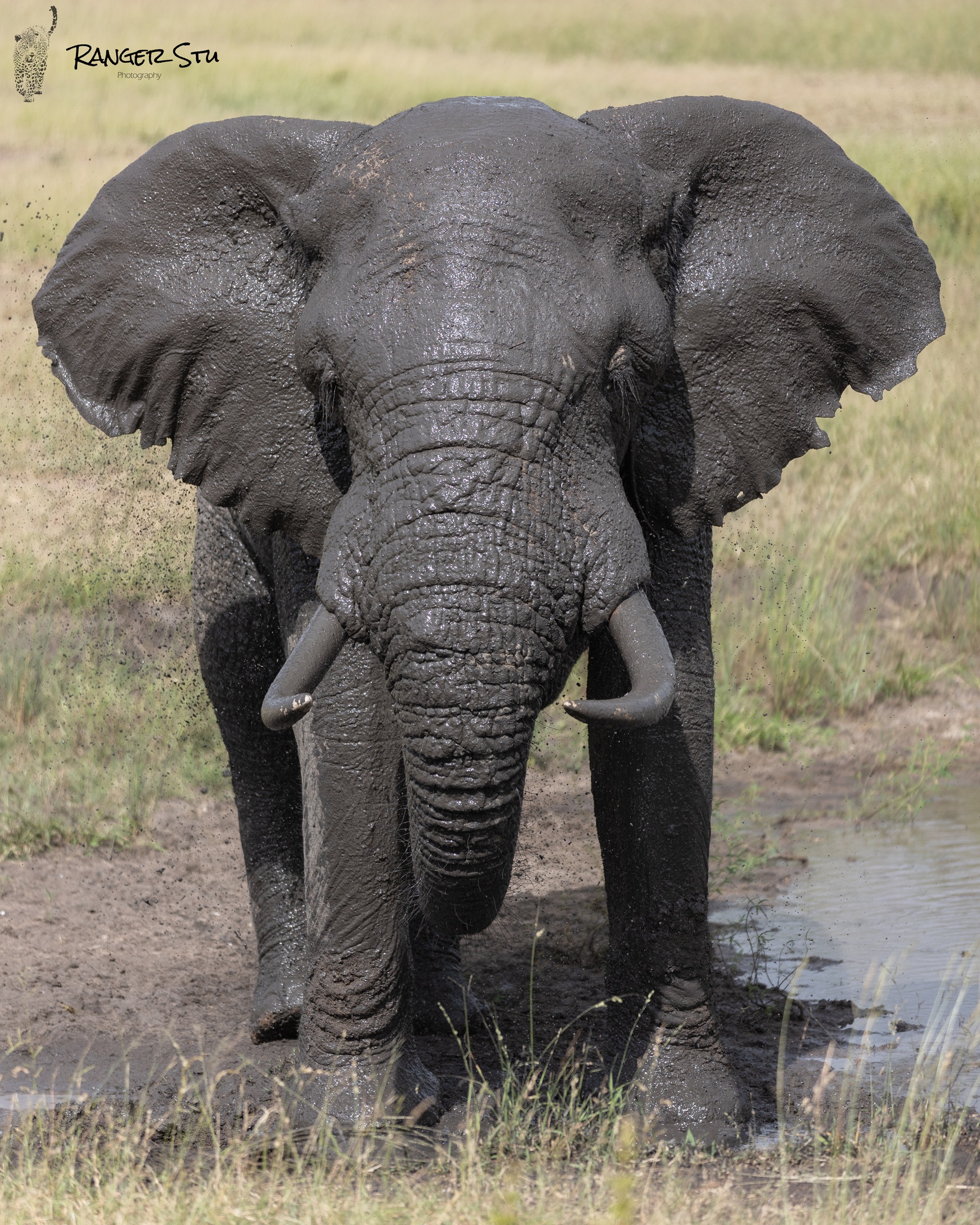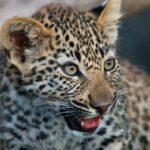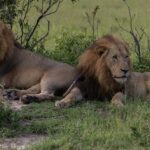Bush Bulletin: November 2023
The Woodland Kingfishers have arrived back and filled the air with their well-known calls to announce summer is in full swing. We got our first rainfall and with that comes baby season which is in full swing. Christmas is around the corner and we eagerly await the birth of the Wildebeest.
Rixaka finds her feet by Cal
Since Rixaka left her mother (Boulder’s) and started moving independently, we have seen her move from victory to victory. Her timing could not have been more perfect with the onset of baby impalas being born.
Rixaka was spotted moving through the tree line near to one of our larger waterholes. She clearly had one thing on her mind, searching for an impala herd. Watching how she weaved her way through a wooded thicket, climbing up marula trees for vantage points and then swiftly closing the gaps until she found the herd was truly incredible.
The impala herd kept moving further and further away until Rixaka finally ran out of breath and gave up the hunt. The next morning we made our way to the same area hoping that she may have been successful during the night. The search did not take long and we saw her perched up a marula tree with a young impala, feasting away.


Circle of Life by Justin
The young Ximungwe cubs have brought so much life to the resident pride here in the West. However, on this occasion, a life had to be lost in order for the future of this pride to continue cementing itself.
The 2 Ximungwe females managed to take down a zebra and brought the young cubs to it. The young male cub continues to supply an endless number of adorable moments as he tries to keep up with his older sisters and ends up being bullied in the process. After all, what are younger brothers for?
View this post on Instagram

Relaxing with Big Bull Elephants by Mowell
For us as guides and trackers, we are very fortunate to have the opportunity of viewing these cool animals around us where we really don’t have to worry much about big animals approaching us while we are out on a safari drive.
One afternoon we went out on drive looking for elephants and we had a very big elephant in the middle of an open clearing. The elephant was just walking around eating the new green grass so we positioned our vehicle at a distance that was far enough without putting pressure on the animal and we enjoyed watching the large bull walking towards us. To our surprise, he came right by us and we had a very close-up encounter and view. By reading the elephant’s behaviour, it was really comfortable to eat right next to our vehicle for about 30 minutes giving us the best sighting that our guests said they’ve never had before and that made us have more respect for the animal since it was showing us full respect and peace.
Having relaxed animals around us really is a blessing and we appreciate the good work that the older generation that worked in this reserve before has done. For us it is also important to ensure we don’t break the trust that the animals have for us.

A Leap of Leopards by Stu
Coming on safari you have a list of animals you would like to see, generally the Leopard is potentially one of the hardest to find, but on this wild afternoon, the guests were in for a real treat. We got a report of not one, nor two but three leopards on a Nyala kill. Leopards are solitary animals so to see more than one together is extremely rare.
On this special afternoon, it was the Basile female who killed a female Nyala and collected the cub once her kill was hoisted. Later in the day the big and dominant male, Euphorbia, came across the kill and joined in.
Once we arrived at the sighting the cub was up the tree feeding on the kill and the mother, Basile, was lying just underneath in the shade. The cub every now and again would look down and give a hiss or growl at mom to ensure she didn’t come up the tree. At the age of only 5 months, it is already giving mom a hard time.
Euphorbia was lying a slight distance away but his attention was fixated on alarm calls up by the river. After a good feed on the Nyala, he left to investigate the alarm calls and he bumped into his daughter, Mahetelelo, and quickly chased her out of the area as she would be a massive threat to the cub.
As many of you know Basile has had unfortunate luck with raising a cub. Fingers crossed for this little guy.


Baby Season Has Arrived by Johan
We have been eagerly awaiting the arrival of baby impalas at Leopard Hills. Impalas are one of the few antelope that give birth around the same time every year. Interestingly, about 90% of all impala lambs are born within a short three to four-week period. Female impala can delay giving birth for up to a month to ensure that their babies are born after the rains, when the weather is warmer and grazing conditions are most favourable.
Most impala are born around midday when their predators are resting. Another of nature’s amazing adaptations to try to increase the chance of survival. The lambs can stand and run with mom within the first hour after birth. Of the 32 species of antelope in Southern Africa, impala are the only species to feature metatarsal glands above the hoof of the hind legs. It has been proposed that the scent released from this gland may act as a chemical cue for other herd members to follow during a chase making it easier for the babies to follow mom.
Stay safe little ones…


On behalf of all staff at Leopard Hills we would like to wish everyone a safe and happy festive season. We all hope to see you sometime soon in the festive season or new year.
Keep an eye open for some of the lodge celebrations and festive season decorations on our social media.
If you’re interested in experiencing an awe-inspiring South African safari, please don’t hesitate to get in touch with our reservations desk at book@leopardhills.com. Alternatively, click here and make use of the quick and seamless online booking process and start planning your ideal vacation today.
We look forward to welcoming you to Leopard Hills Private Game Reserve.





